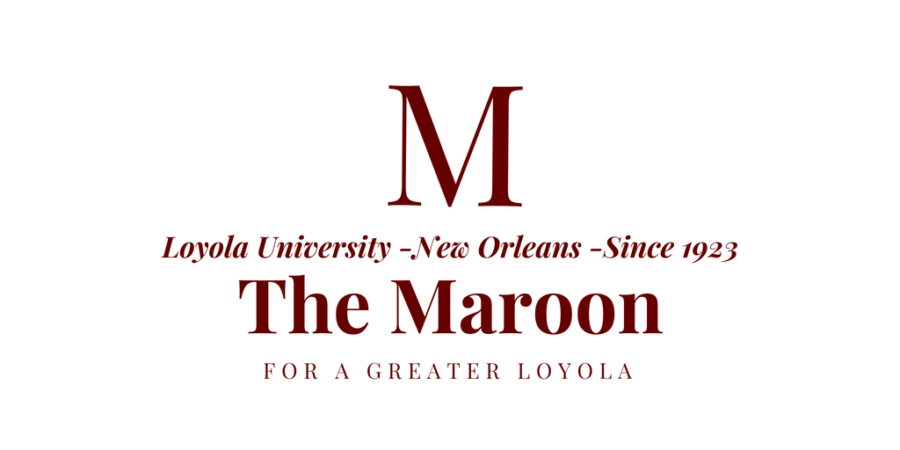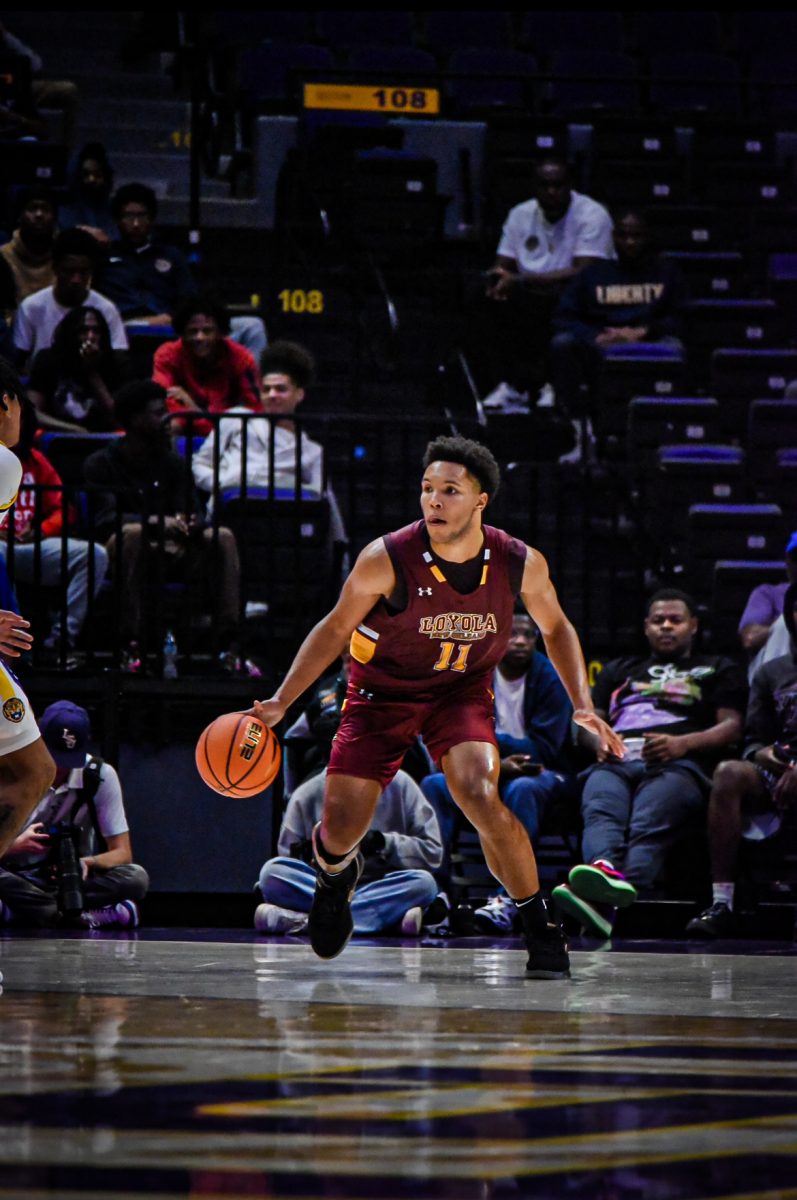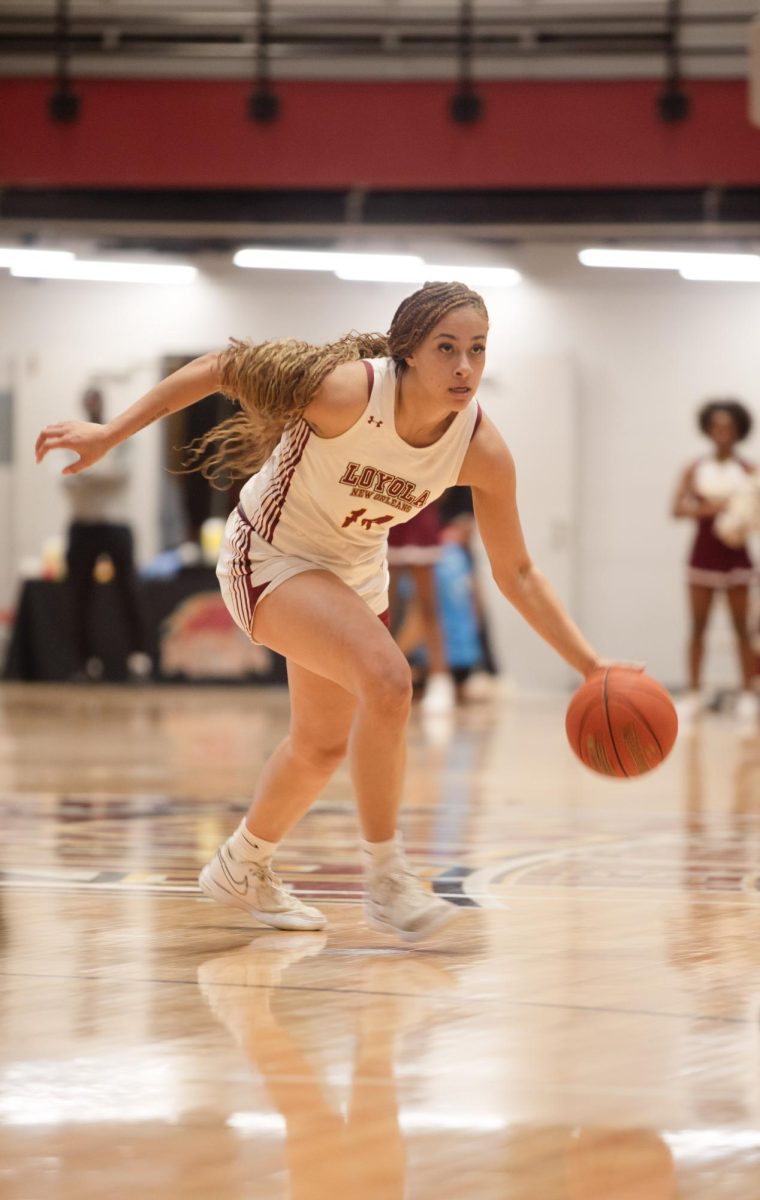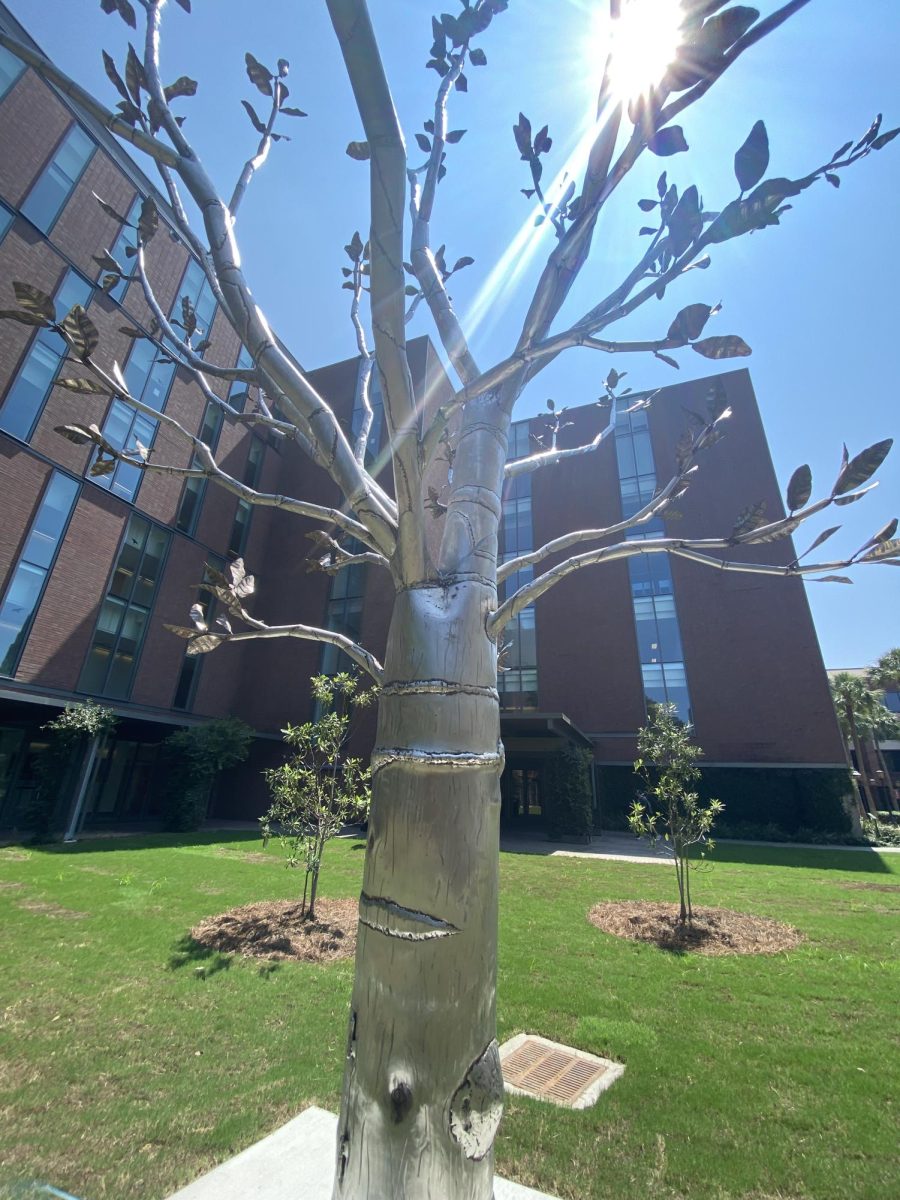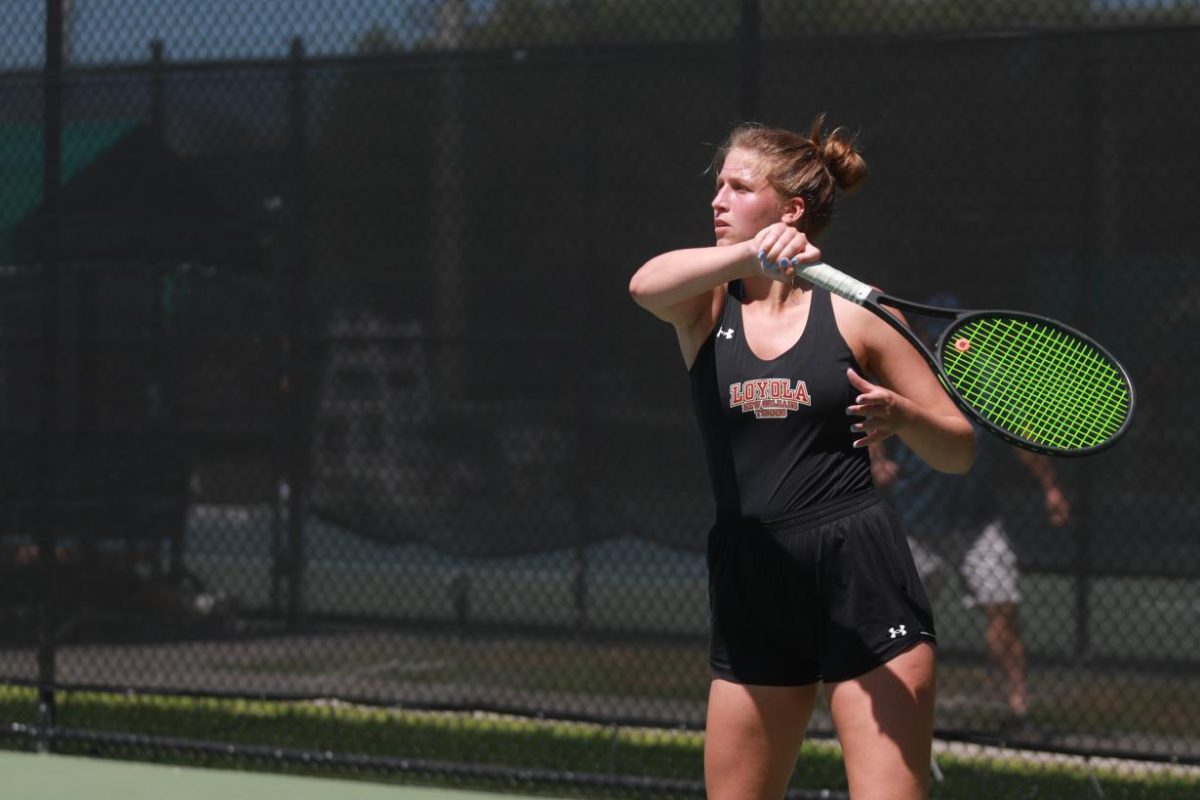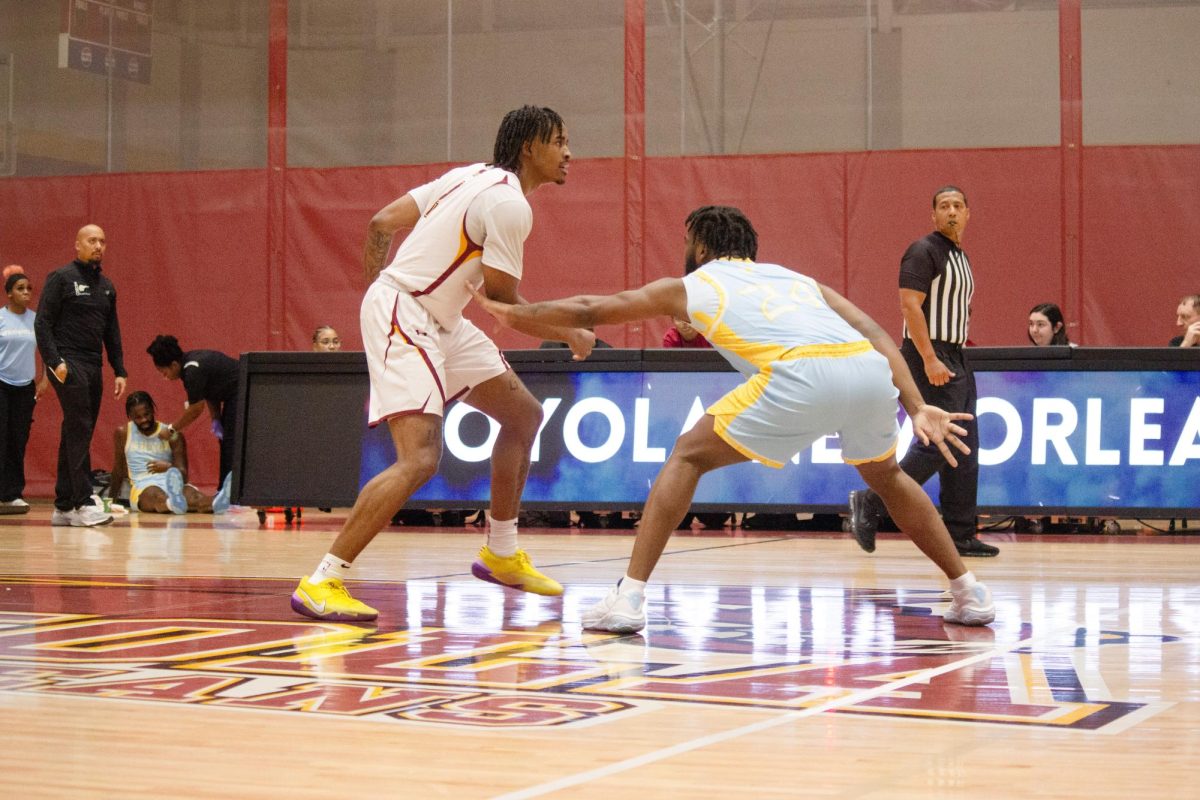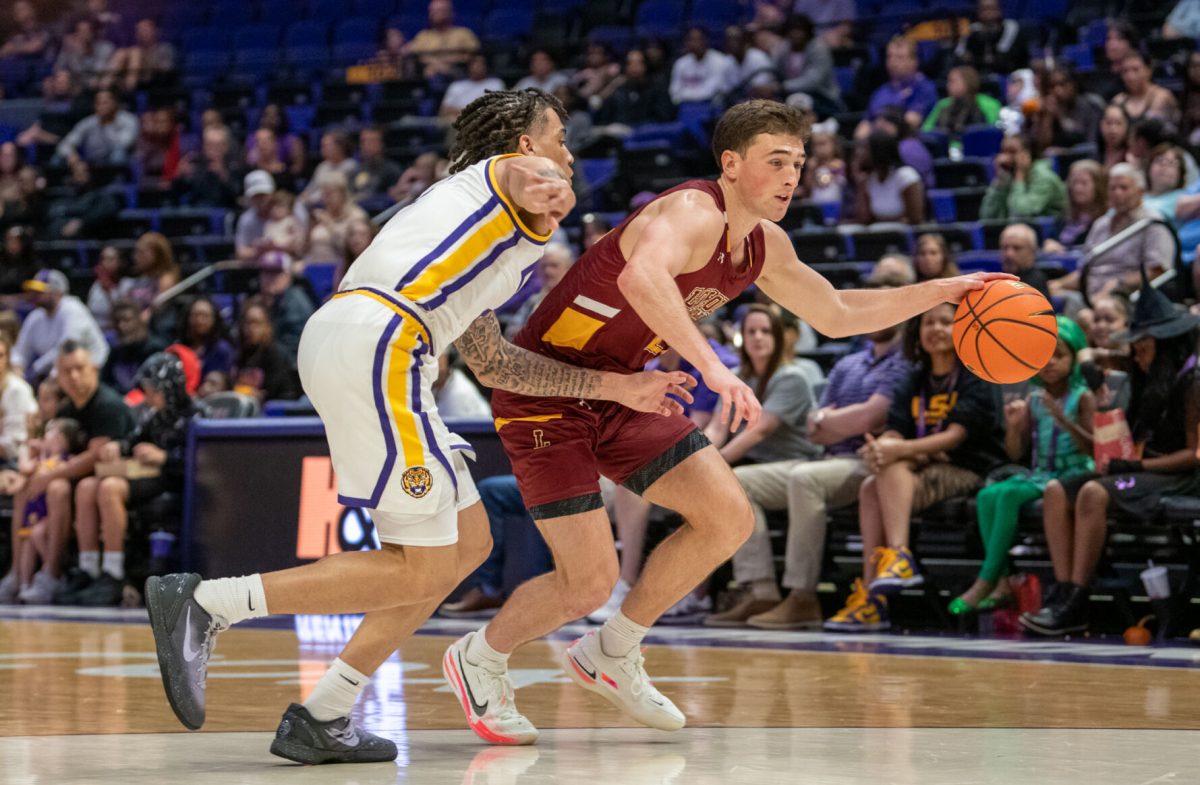This article was written by The Maroon staff on Apr. 13 1945
Loyola’s 1945 national intercollegiate basketball champions were honored at a testimonial banquet Tuesday at La Louisiane restaurant. New Orleans sports editors, the president and the deans of the University, and faculty members cited the team as the best in the history of Loyola.
Sports Editor Fred Digby of the New Orleans Item. said Loyola’s victory in Kansas City “marked the beginning of great basketball in the deep South” and that the Wolves have “Set the pace for all other southern teams.”
“When I saw Loyola win over Keessler field and Gulfport. two of the strongest cage teams in the South, I knew that they were a great ball club destined for, a successful year,” said Harry‘ Martinez, sports editor of the New Orleans States.
Both men commended Coach‘ Jack Orsley as one of the nation’s great coaches. The Rev. P. A. Roy. S.J.m president of the University and host for the evening, stated that thei Wolfpack possessed teamwork, the keynote of greatness.
“Without cooperation with the coach and with one another, the basketball team would have never won the national championship,” Father Roy said.
Joe Abraham, president of the Alumni association and toastmaster for the evening, congratulated the team on behalf of the Alumni council and all graduates of Loyola.
Coach Orsley read excerpts of letters from the men in service congratulating the Wolvos on their national championship. “These letters give testimony of morale. building the team did for our service men.” Coach Orsley explained.
Co-captains of the Wolf squad, Sam Foreman and John Casteix. praised Coach Orsley and looked forward to next Season. Together they cut the victory cake.
Jim McCafferty, assistant coach and Mr. Orsley’s “right hand man,” presented each of the players with a photography of the team.
Among those attending the banquet were the Rev. A. William Crandell, S.J., dean of faculty, the Rev. Lester F. X. Guterl, S.J., dean of men; the deans of various schools and colleges of the university; preparatory school athletic coaches; and Lt. (jg) John Altobello, captain of the Wolfpack in 1941.


